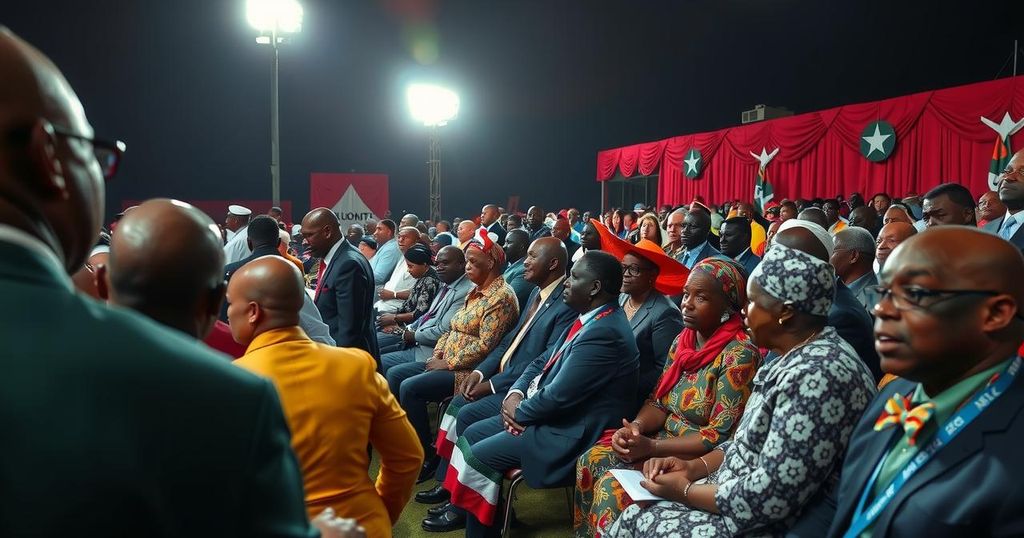Botswana Elections: A Pivotal Decision for Governance and Economy

Botswana held elections on October 30, 2024, to decide the fate of the Botswana Democratic Party (BDP), which has ruled for 58 years. President Mokgweetsi Masisi seeks re-election amid economic strains, including a 27% overall unemployment rate and heavy reliance on diamond exports. With three significant challengers contesting his leadership, this election is pivotal for the future direction of the nation.
Botswana’s election was held on October 30, 2024, to determine whether the Botswana Democratic Party (BDP), which has maintained power for 58 years since the nation gained independence in 1966, would continue for another term. The ruling party’s leader, President Mokgweetsi Masisi, is seeking a second and final term amid rising economic challenges confronting the nation. Economic Dependencies such as the reliance on diamond exports, which have been severely affected by a global downturn in demand, prompted criticism and calls for policy changes aimed at diversifying the economy. With unemployment reaching 27%, particularly high among youth, the BDP acknowledged the need to adapt its strategies. Meanwhile, three candidates are contesting the presidency against Masisi: Duma Boko from the Umbrella for Democratic Change, Dumelang Saleshando of the Botswana Congress Party, and Mephato Reatile from the Botswana Patriotic Front. The election results are anticipated shortly after the polls close, as the nation deliberates the future direction of its governance and economic policies.
Botswana has been recognized as a stable democracy with some of the highest living standards in Africa. However, it now faces economic pressures due to declining diamond sales, which constitute over 80% of its exports and a significant portion of its GDP. This jeopardized revenue has raised unemployment and delayed government salaries, challenging the BDP’s historical efficiency. The BDP’s electoral promises include a focus on diversifying the economy through enhanced processing of mineral resources and investments in agriculture and tourism, areas that could provide new pathways for economic growth. Additionally, the political landscape is marred by tensions between President Masisi and his predecessor, Ian Khama, adding another layer of complexity to the elections.
The outcome of the election in Botswana is critical, as it will determine the future governance structure and approach amidst pressing economic challenges. The BDP has historically been a dominant force in the political arena; however, recent economic issues have narrowed the gap with opposition parties. As voting occurs, the people of Botswana must choose whether to continue with a long-standing ruling party or opt for changes proposed by emerging political competitors.
Original Source: apnews.com







